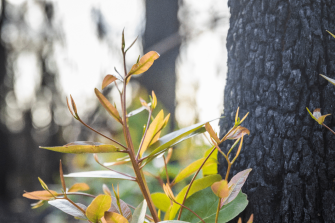Resilient Minds Study

The Resilient Minds Study (ReMind) is an app-based longitudinal study of cognitive and mental health resilience.
Many of us are faced with a variety of stressors and adversities at different stages of our lives – from early childhood through to our late adult days.
Understanding the many factors that can impact and build resilience in the face of adversity is important to inform and develop future interventions that promote cognitive health and mental well-being.
We have developed a new research app so you can participate conveniently from your phone by answering questions about your daily life and overall well-being and complete game-like cognitive and physical tasks.
Our participants use a custom-built research app to help us learn more about the many factors that impact our resilience to a range of adversities. We are interested in psychological, physiological, social and environmental factors that might impact cognitive and mental health. With your help, we can explore questions like:
- How is mental health related to brain health at all ages?
- Does social support protect us from cognitive decline in later life?
- How can we build resilience following traumatic events?
Watch this short video to hear more about the study from our Chief Investigator, Laureate Professor Kaarin Anstey.
Join the study
We are seeking people aged 18 years and older to help us learn more about resilience, mental health, and cognition across the lifespan. The study is virtual, and you can join from anywhere in Australia, provided you have an iPhone and ability to connect to the internet.
Find out if you are eligible now!
About the study
This research is funded by the Australian Research Council, through a Laureate Fellowship to Professor Kaarin Anstey (Grant: FL190100011). It has been approved by the UNSW Human Research Ethics Committee (approval number: HC220723).
Our research team are based in New South Wales (UNSW Sydney and UNSW Canberra). However, we are looking for participants from across Australia to join the study.
This study is intended to run for a minimum of 2 years. The research app is user-friendly and requires a relatively small time investment from participants across the study period.
What does participation involve?
- Answer questions to determine if you are eligible for the study
- Download the free research app and complete the informed consent process
- Some eligible participants will receive an Apple Watch and earphones in the post for use during the study (where available)
- Complete a health questionnaire in the first 2 weeks of the study
- Complete short surveys and game-like physical and cognitive tasks sporadically over a 2-year period.
The study is being carried out by the following researchers:
• Scientia Professor Kaarin Anstey, Professor in the School of Psychology at the University of New South Wales (UNSW)
• Dr Brooke Brady, ARC Postdoctoral Fellow at the UNSW Ageing Futures Institute
• Dr Lidan Zheng, ARC Postdoctoral Fellow at the UNSW School of Psychology
• Dr Ranmalee Eramudugolla, Research Manager at the UNSW School of Psychology
• Daniel Ashworth, Senior iOS developer at the UNSW Ageing Futures Institute
• Tanya Layton, Project Manager at the UNSW School of Psychology
• Dr Hamidul Huque, Statistician in the UNSW School of Psychology
• Shally Zhou, PhD Student at the UNSW School of Psychology
• Jana Koch, PhD Student at the UNSW School of Psychology



